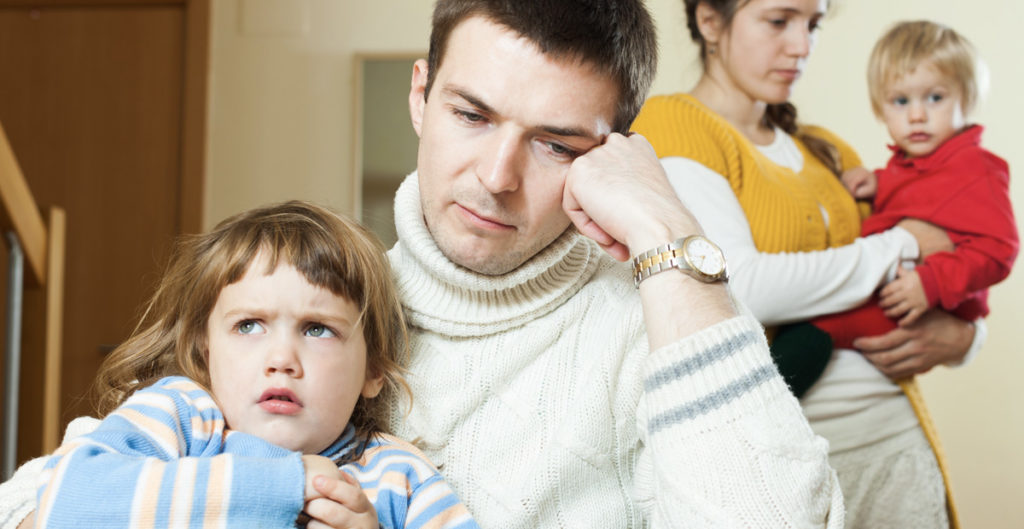Children are keenly affected by their home environment; they flourish in a steady and safe environment. Naturally, during the breakdown of a marriage, adults can run through the gamut of emotions: hurt, pain, vengefulness and anger. The turmoil from disagreements and emotional discussions may leave lasting emotional scars on children. The upheaval before, during and after separation may result in dramatic changes in a child’s behavior; it is important to be alert to those changes in order to help them through the healing process.
Professional care and advice during this time can help all those involved through the process. Paediatricians, family counsellors, psychologists and family doctors have knowledge and experience in recommending successful treatments and coping mechanisms for adults and children. There are positive steps that parents can take to be proactive in protecting their children’s well-being.
What to say to your children
Formulate a plan: As early as possible and when both parents can take the time to consider all the issues, they should plan steps that will address their children’s needs, questions and unique vulnerability.
What to tell your children: Plan out exactly what to say to your children. Their age should influence what is said. The younger the child, the less complicated the explanation needs to be. Older children are more mature and may have questions; it is very important to be honest and calm during your discussion with them. Parents need to actively listen to all of their children’s concerns and to provide answers at the appropriate level of detail; children do not need to know all the specifics of their parent’s disagreements.
How to break the news: If possible, both parents should explain what is happening. Presenting a united front provides some reassurance to the children who are likely feeling confused and vulnerable.
When breaking the news, it is very important to reinforce the fact that they are not at fault for the separation, but rather, this is a problem between the adults in the relationship. Children may blame themselves and carefully chosen words go far to ease their minds of this misconception. Also, do not give them any false hope that the separation is not permanent.
Show a continuation of your love. Both parents need to reassure their children that the separation in no way affects how much they are loved. They need to know that they will continue to spend time with both parents. Make time for one-to-one discussions and activities with each child, if you have more than one.
Easing the transition into separate households
Both parents need to agree on a visitation schedule before discussing it with the children. An older child may insist of having more input on where they live and as parents, you will need to take this into consideration. Discuss how the physical living arrangements will change. In most cases, leaving the children in their primary residence (where they grew up) can be the most beneficial. Familiar surroundings provide a level of comfort that is particularly important during a divorce or separation.
Organization is key when dealing with issues that will affect your children. Having a consistent and easy routine in place for pickups and drop-offs provides needed stability for the children.
Be respectful of the other parent and supportive of your children’s time with ‘your ex’; your children continue to need both their parents. When dropping off children, maintain an air of politeness. Encourage your child’s relationship with their in-laws. Maintain open communication between yourself and ex-spouse. Both parents need to be involved in disciplining and also, in discussions of issues such as school events or extra-curricular involvement. Avoid using your child as the go-between for communication with your ‘ex’.
Be watchful of changes in your children’s behaviour that may be indicative of anxiety or unhappiness. If you have concerns with how they are handling the changes in their lives, speak to your family doctor, community services or support group.
At Zeidman Law Offices, we offer experienced and caring support to everyday people who are going through challenging family related events. We provide frank, legal advice and resolution for a range of family law matters including child custody, spousal support, domestic contracts and division of property. Zeidman Family Law is committed to helping you resolve difficult decisions and in negotiating the best solution for you and your loved ones. Our professional staff is here to help you. We offer a free initial consultation or you may choose to respond to the free online inquiry form available on our website. Call us today and let us help you determine your options.
